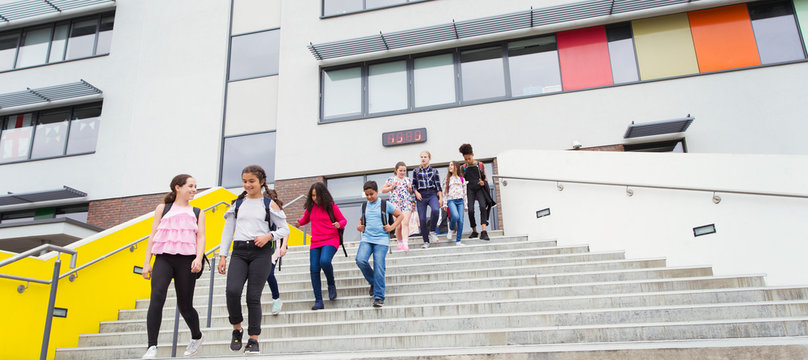Introduction
Education is widely regarded as one of the most important pillars of modern society. It serves as a catalyst for personal growth, societal development, and global progress. The process of education is not limited to classroom learning; it encompasses a diverse spectrum of experiences, including critical thinking, emotional intelligence, practical skills, and technological literacy. In today’s rapidly evolving world, education is more than acquiring knowledge—it is about fostering adaptability, resilience, and creativity.
The Importance of Education in Modern Society
Education plays a critical role in shaping individuals and communities. Its importance can be understood from multiple perspectives:
- Economic Growth: Countries with high literacy and education levels often experience accelerated economic development. Skilled professionals contribute to innovation, productivity, and global competitiveness.
- Social Equality: Education helps bridge social gaps by providing opportunities for marginalized communities. Access to quality education empowers individuals to break cycles of poverty and discrimination.
- Personal Development: Beyond academics, education promotes mental and emotional growth. Students learn problem-solving skills, teamwork, communication, and ethical reasoning.
- Civic Engagement: Informed citizens are better equipped to participate in democratic processes, contribute to societal well-being, and advocate for positive change.
Types of Education
Education is not a monolithic concept; it is multifaceted, addressing different age groups, learning styles, and societal needs. The major types include:
Formal Education
Formal education follows a structured curriculum and is delivered in schools, colleges, and universities. It typically leads to certification or degrees. This system includes:
- Primary Education: Focused on foundational skills like reading, writing, and arithmetic.
- Secondary Education: Expands knowledge in subjects like science, mathematics, languages, and social studies.
- Higher Education: Universities and colleges provide advanced learning in specialized fields, preparing students for professional careers.
Informal Education
Informal education occurs outside traditional classrooms. It includes self-directed learning, online courses, workshops, and community programs. Informal education encourages curiosity, creativity, and lifelong learning.
Non-Formal Education
Non-formal education bridges formal and informal methods. It includes vocational training, adult literacy programs, and skill-based workshops. Non-formal education is essential for individuals seeking practical skills that enhance employability.
Digital Education and E-Learning
The advent of technology has revolutionized the educational landscape. E-learning platforms, virtual classrooms, and educational apps have made learning more accessible and personalized. Key benefits of digital education include:
- Accessibility: Students in remote or underserved regions can access quality education online.
- Flexibility: Online learning allows learners to study at their own pace, accommodating different schedules and learning styles.
- Interactive Tools: Multimedia content, simulations, and gamification make learning engaging and effective.
- Global Exposure: Digital education enables interaction with global experts, fostering cross-cultural learning and collaboration.
Challenges in the Education Sector
Despite its benefits, the education sector faces several challenges that impact quality and accessibility:
- Unequal Access: Many regions, particularly in developing countries, still lack adequate schools, qualified teachers, and learning resources.
- Rising Costs: Higher education, especially in private institutions, can be prohibitively expensive, limiting opportunities for many students.
- Outdated Curriculum: Traditional curricula often fail to keep pace with technological advancements and evolving job market requirements.
- Teacher Shortages: A shortage of trained educators affects the delivery of quality education. Continuous professional development is crucial to maintain teaching standards.
Innovations Transforming Education
Several innovations are redefining how education is delivered and experienced:
- Artificial Intelligence (AI) in Education: AI-powered tools provide personalized learning paths, instant feedback, and adaptive assessments.
- Gamification: Educational games and interactive simulations enhance engagement and retention.
- Blended Learning: Combining online and offline learning methods offers flexibility and improved outcomes.
- STEM and STEAM Programs: Science, Technology, Engineering, Arts, and Mathematics programs encourage interdisciplinary learning and critical thinking.
- Experiential Learning: Hands-on projects, internships, and real-world problem-solving foster practical skills alongside theoretical knowledge.
The Role of Government and Policy
Governments play a crucial role in shaping educational systems through policy-making, funding, and regulation. Effective policies can ensure:
- Equal access to education for all communities.
- Curriculum updates aligned with global standards and industry needs.
- Teacher training programs to enhance quality and effectiveness.
- Integration of technology to support modern learning methods.
The Future of Education
The future of education is likely to be more inclusive, flexible, and technology-driven. Some key trends to anticipate include:
- Lifelong Learning: Continuous skill development will be essential in a rapidly changing job market.
- Global Collaboration: Students worldwide will engage in cross-border projects, fostering multicultural understanding.
- Personalized Education: AI and data analytics will create tailored learning experiences based on individual strengths and weaknesses.
- Sustainability Education: Growing awareness of environmental issues will integrate sustainability into curricula at all levels.
Conclusion
Education is the cornerstone of personal and societal development. By equipping individuals with knowledge, skills, and values, education empowers people to lead fulfilling lives and contribute to the collective good. As technology evolves and societal needs shift, education must continue to adapt, ensuring accessibility, equity, and relevance for generations to come. A commitment to lifelong learning, innovative teaching, and inclusive policies will shape a future where education truly transforms lives.
FAQs About Education
1. What are the main differences between formal, non-formal, and informal education?
Formal education is structured and leads to certification, non-formal education focuses on skill development outside traditional classrooms, and informal education occurs through self-directed or experiential learning.
2. How has technology impacted modern education?
Technology has increased accessibility, personalized learning, and engagement through digital tools, online platforms, AI-powered assessments, and interactive multimedia content.
3. Why is STEM education important?
STEM (Science, Technology, Engineering, Mathematics) education promotes problem-solving, innovation, and critical thinking, preparing students for future careers in a technology-driven world.
4. What challenges does the education sector currently face?
Challenges include unequal access, rising costs, outdated curricula, and teacher shortages, all of which can impact quality and inclusivity.
5. How can governments improve education quality?
Governments can improve education by updating curricula, training teachers, funding schools, integrating technology, and ensuring equitable access for all students.
6. What is the role of lifelong learning in modern society?
Lifelong learning allows individuals to continually acquire new skills, adapt to evolving industries, and stay competitive in the workforce.
7. How does experiential learning enhance education?
Experiential learning provides hands-on experience, real-world problem-solving, and practical application of theoretical knowledge, which deepens understanding and retention.















